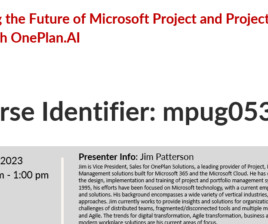What is Agile Project Management?
The IIL Blog
SEPTEMBER 6, 2023
By APMG International September 6, 2023 Agile project management is a flexible approach to managing projects which involves taking incremental steps referred to as sprints or iterations. The History of Agile Project Management Agile project management emerged in the software development industry in the late 1990s and early 2000s.
























Let's personalize your content